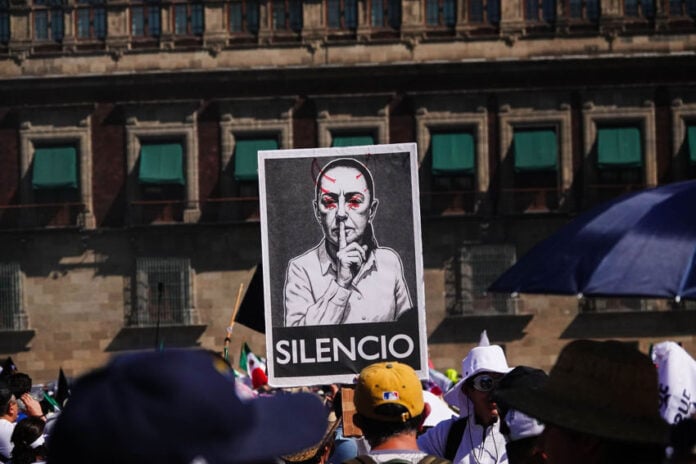Amigos, indulge me a confessional preamble: This is just my angle — that of one observer, close to the ground, a little haunted by the warning flare now flickering over Mexican politics.
My intent isn’t to convert skeptics or inspire unanimity but to inject another thread into the noisy tapestry of public debate — a mosaic that too often leaves out dissent and discomfort.

A few months back, I admitted in print that I hadn’t voted for President Claudia Sheinbaum or her party, yet found myself — rather unexpectedly — moved by the promise of her early months in office. There was something genuinely hopeful in the way she handled Washington’s overtures, how she and federal Security Minister Omar Harfuch grappled with the crime organizations, how she made bold efforts to attract foreign investment and, not least, appointed a self-declared feminist cabinet.
I said then — and I say now — that the judicial reform, whose final steps into law she shepherded, was a dangerous regression. But still, hope was afoot. Even among my skeptical friends, that faint but palpable sense of possibility drifted through our conversations.
A Michoacán mayor’s murder and polarization
Yet, today, that hope has curdled. The murder of Carlos Manzo was the inflection point — not just for its brutality but also for the eerie sense of déjà vu it delivered.
Manzo wasn’t swallowed by the anonymizing tide of statistics. He was on camera, pleading with the president to protect his city — Uruapan. Sheinbaum’s response, from the mañanera’s sacred dais, was to urge Manzo to follow official procedures. Bureaucracy offered as balm.
He did, dutifully. In the end, the Mexican National Guard’s “protection” extended to just one man — not to a community gripped by real peril.
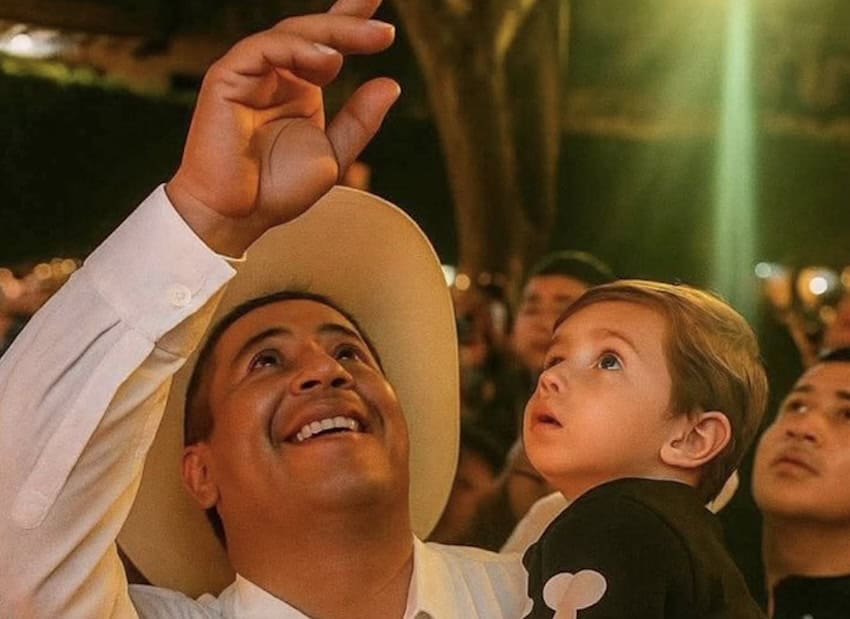
Protests erupted, first in Uruapan, then across Michoacán. The unrest found its face and symbol — the sombrero, a homegrown call to reclaim basic security. As former electoral councilor Luis Carlos Ugalde observed, these were perfect conditions for authentic mobilization: a fallen leader, a potent symbol, a crisis and an urgent call to action.
But let’s not mistake consequences for coincidence. According to reporting in the news magazine Wired, a group of young Mexicans — organizing on Discord, the online chat platform favored by gamers worldwide — were galvanized by the Nepal movement to denounce corruption and violence. Yet, almost instantly after Manzo’s killing, social media profiles surfaced for “Generación Z,” purportedly a leaderless and idealistic movement but quickly entangled with National Action Party (PAN) and Institutional Revolutionary Party (PRI) operatives.
Right from the outset, the movement showed signs of being co-opted, as Sheinbaum herself pointed out.
The choreography of blame and deflection
During her November 13 daily press conference, President Sheinbaum invited Miguel Ángel Elorza, head of Infodemia.mx — a Mexican website dedicated to exposing “fake news” — to disclose the faces, names and histories of protest organizers, as if these citizens had morphed overnight into public enemy number one.
In the presidential press conference that followed Manzo’s murder, Sheinbaum reverted to a familiar script: invoking “the opposition,” brandishing memories of Calderón’s drug war and deflecting blame onto the ghosts of administrations past.
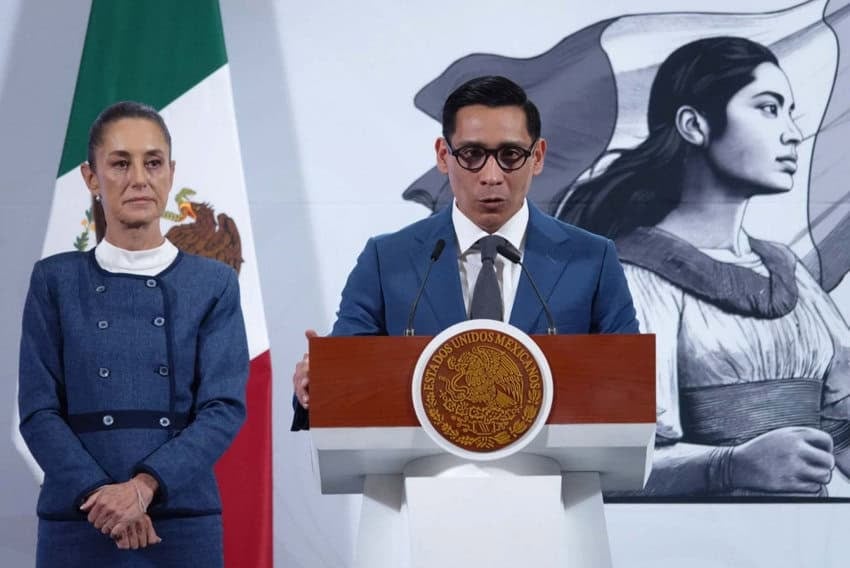
Polarization, in Mexico, has become second nature — a convenient shield against reckoning with uncomfortable truths. PAN president Felipe Calderón’s crime-fighting policy of militarization was once denounced by Sheinbaum’s side; now, her policies — hardly distinguishable — are met with a choreography of blame and denial.
The absurdity is evident: No single leader, least of all Sheinbaum, created the cartels’ stranglehold on the country or Mexico’s perilous vulnerability. And what she inherited was a ticking time bomb.
Expectations that she could defuse this bomb before the World Cup begins are the stuff of fantasy. Yet, what’s most disturbing isn’t the persistence of Mexico’s insecurity but the almost theatrical response from the National Palace: finger-pointing and spectacle, rather than reflection and reform.
Co-opted marches, manufactured consent
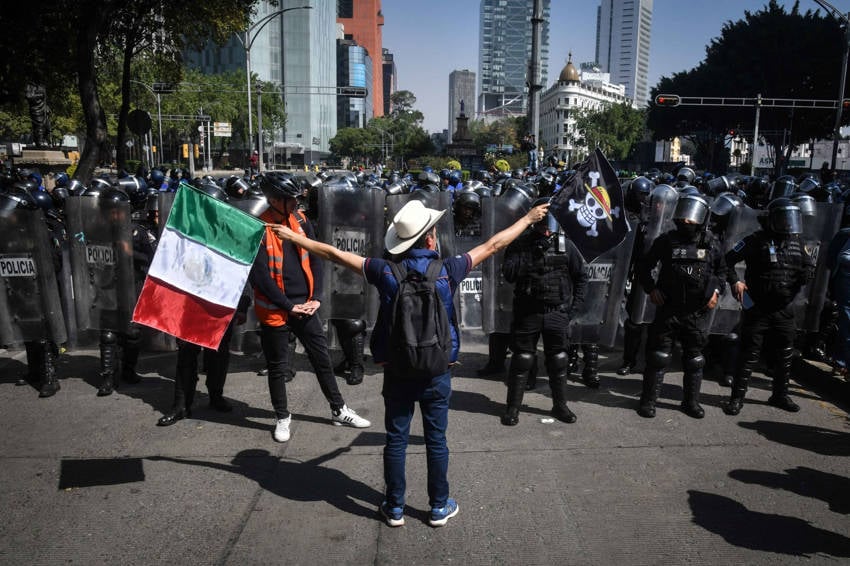
As for marches — I don’t join them anymore. In a country where paid crowds are a matter of course, public protest often feels performative, stripped of its potency. Still, to even have the right to gather, to vent — even if only on paper — remains a privilege not to be scoffed at. But this fragile right is easily crushed. One hurled accusation — that your outrage is bought, your protest orchestrated by “la oposición” — can cheapen and silence dissent. Criticism these days is quickly tarred as betrayal.
I already can hear the response: “Here’s another bitter PAN supporter.” But after years in the media trenches, cynicism is nonpartisan; I mistrust all parties equally. If the president were PAN or PRI, you’d still be reading this exact argument.
I agree with the president on one point: In Mexico, social movements have long doubled as opportunistic platforms for politicians seeking electoral gain. It is, indeed, immoral that the PAN, PRI, and even business tycoons like Ricardo Salinas Pliego rush to capitalize on a tragedy. Profiting from violence and grief is indefensible.
Yet, with every protest, the government’s impulse isn’t to listen but to shame — to publicly expose those who organize marches, putting names and faces on screen as if organizing a protest had become an act of subversion, not a civic right.
Was this spectacle necessary? Was it ever justified? When the president mocks the existence of elderly marchers at a “Gen Z” march, even as intelligence briefings confirm real grievances driving them, does this reflect a government open to dissent — or just skilled at denial?
Doctors, farmers and parents getting lumped together with agitators and dismissed with a shrug — that’s not engagement, it’s erasure.
The manual of good governance — lost in translation
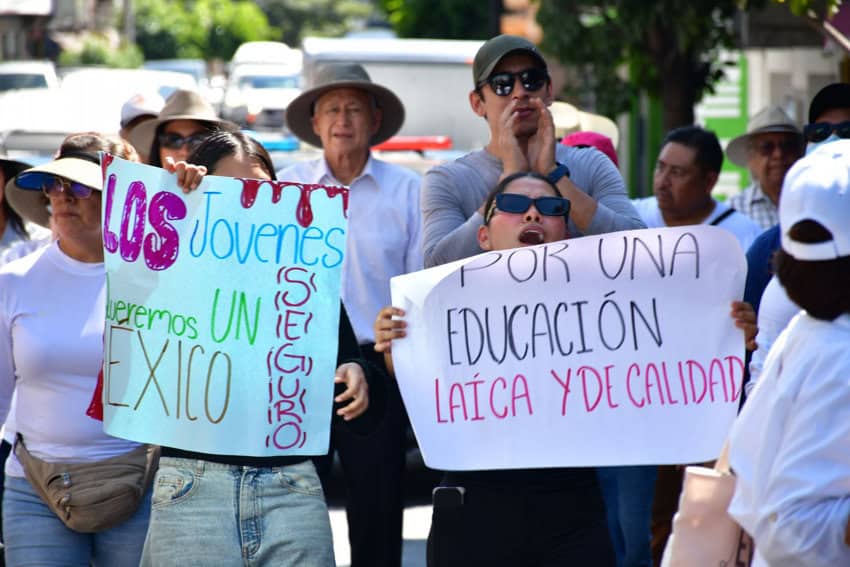
The ancient Roman philosopher and statesman Cicero believed rulers should serve all people impartially. By this metric, Sheinbaum falters. A 25-year-old protest organizer gets a public drubbing while party insiders dogged by corruption accusations get a free pass. Justice in Mexico is doled out with a troubling selectivity.
Among friends and acquaintances, it’s less the ideology that alarms and more the sense projected by the government that even reasonable critique is suspect — a nation-state on the defensive, where questions equal subversion.
In this context, 37,000 Mexicans — mostly privileged, mostly employers — have chosen to rebuild their lives in Spain and Portugal, according to the financial magazine Forbes. If this many Mexicans are quietly weighing the option of leaving their homeland, it’s not a fluke; it’s a tremor.
The question we should all ask
If the president were listening, I’d ask: What happened to the hope that once united ordinary citizens — doctors, farmers, mothers — under a promise of something better? Perhaps the answer is this: A government that exposes and discredits dissenters leaves little room for loyalty, less still for hope.
To criticize is not to betray; it is to take citizenship seriously. The real “yellow light” of alarm is not to be found in the street protests rocking Mexican cities but in the highest office of the land — where forgetting that criticism is democracy’s lifeblood may be the gravest issue of all.
Maria Meléndez is an influencer with half a degree in journalism
